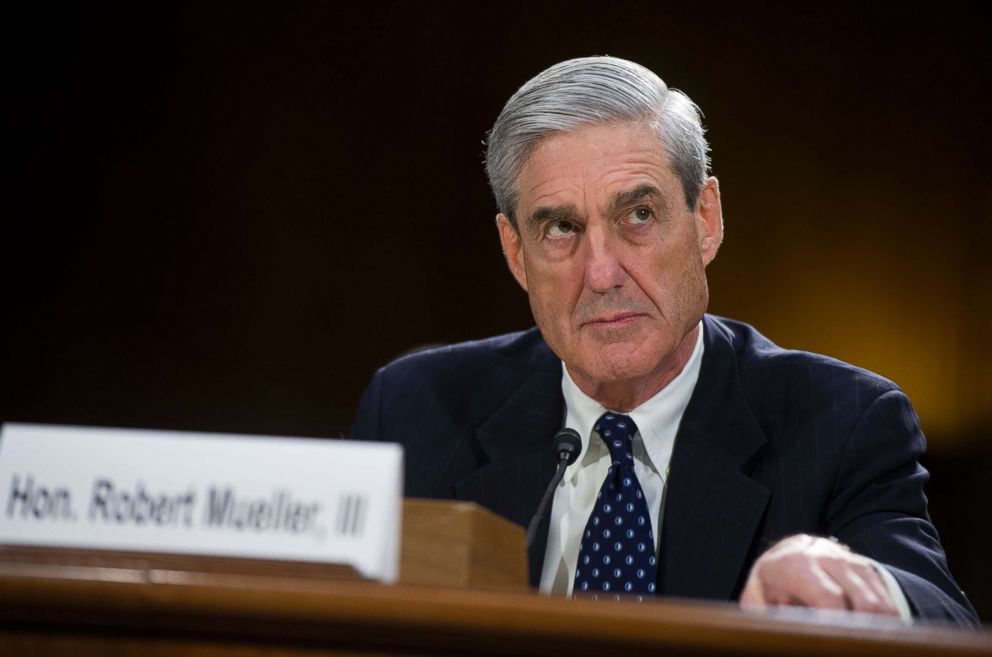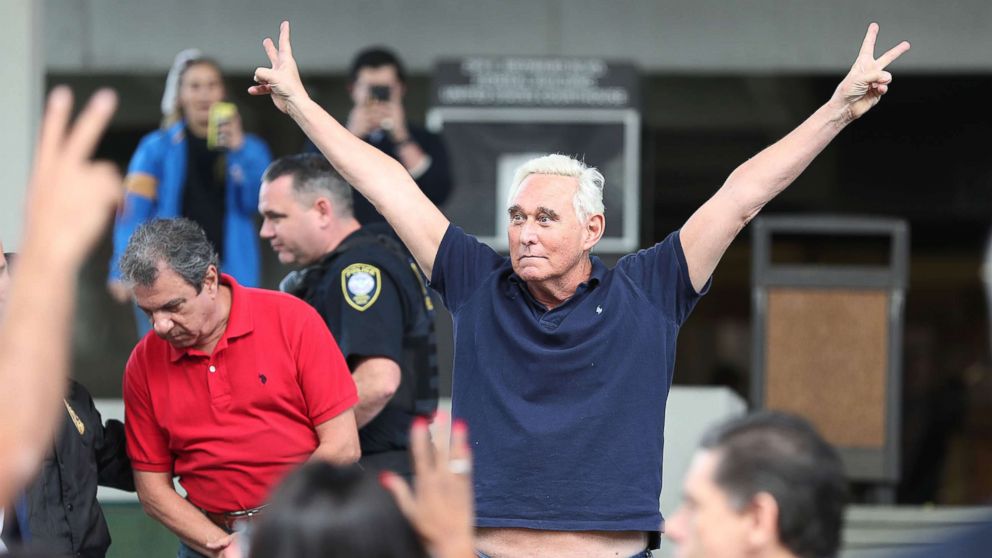Congressional Republicans question FBI tactics used on Roger Stone
Congressional Republicans said on Wednesday they want answers from FBI Director Chris Wray about the tactics his agents used last Friday to arrest Roger Stone, a longtime adviser and confidante to President Donald Trump.
Stone was taken into custody, and his Fort Lauderdale, Florida, home searched, in a pre-dawn raid by a swarm of agents in armored vests and brandishing long guns. The raid came after a seven-count indictment brought by special counsel Robert Mueller as part of his investigation into Russian interference in the 2016 election.
Since then, Stone and some in the conservative news media have criticized the FBI operation as heavy-handed. Stone called it "Gestapo tactics." Former Republican governor and ABC News contributor Chris Christie characterized the handling of the arrest as "overkill," although other former law enforcement officials have called it standard procedure.
Trump told the Daily Caller on Wednesday he would "think about" asking the FBI to review its use of force and cited concerns over the number of agents and types of vehicles on the scene for an alleged white collar crime suspect.
"I thought it was very unusual," Trump said.

Other Republicans have demanded answers.
"I am concerned about the manner in which the arrest was effectuated, especially the number of agents involved, the tactics employed, the timing of the arrest, and whether the FBI released details of the arrest and the indictment to the press prior to providing this information to Mr. Stone's attorneys," Sen. Lindsey Graham, the Republican chairman of the Senate Judiciary Committee, wrote in a letter to Wray on Wednesday. Graham’s committee has oversight of the FBI.
Rep. Doug Collins, the top Republican on the House Judiciary Committee, wrote Wray on Wednesday as well, asking for information on the raid and suggesting that "such a show of force may also unnecessarily place agents’ lives at risk by potentially heightening the risk factor for everybody involved."
The FBI and special counsel’s office declined to comment.

Following his arrest and initial court appearance last week, Stone told reporters gathered outside a federal courthouse in Florida that agents had "terrorized" his wife and dogs.
"They could simply have contacted my attorneys and I would have gladly surrendered voluntarily," Stone said.
Prosecutors wrote in court documents that alerting Stone in advance of an imminent indictment would risk "the defendant fleeing and destroying (or tampering with) evidence."
"While I firmly support law enforcement taking into account threats to officer safety, flight risk, and the need to ensure evidence is preserved," Graham wrote, "I am leery that a subject of the Special Counsel’s investigation, who had retained counsel, had publicly stated that he believed that he would at some point be indicted, and was apparently willing to surrender voluntarily, was arrested in a pre-dawn raid at his home."
"Although I am sure these tactics would be standard procedure for the arrest of a violent offender, I have questions regarding their necessity in this case," Graham continued. "The American public has had enough of the media circus that surrounds the Special Counsel's investigation. Yet, the manner of this arrest appears to have only added to the spectacle. Accordingly, I write to seek justification for the tactics used and the timing of the arrest of Mr. Stone."

Stone’s indictment includes five counts of lying to Congress, one count of obstruction of an official proceeding, and one count of witness tampering. He faces up to 50 years in prison if found guilty, but Stone insists he’s innocent and has pledged to fight the charges.
Stone is scheduled to appear again in a Washington, D.C., federal court on Friday.
ABC News' Mariam Khan contributed to this report.
Editor’s Note: This story previously misidentified the statutory maximum for Roger Stone’s crimes as 20 years in prison. The actual maximum is 50 years in prison. We regret the error.




